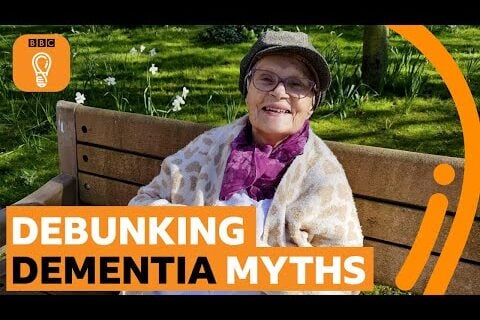Anticholinergic drugs have been consistently linked to cognitive impairment. Scientists seek de-prescribing trials to test anticholinergic drugs as reversible risk factors for dementia. Can de-prescribing these medicines help us fight dementia?
In a commentary published in JAMA Internal Medicine, three Regenstrief Institute research scientists write that while they and other researchers have identified a strong and consistent link between anticholinergic drugs and cognitive impairment from observational studies, randomized clinical trials represent the only rigorous method to definitively establish a causal relationship between these frequently used drugs and various dementias.
Drugs with anticholinergic properties are frequently prescribed for anxiety, depression, and certain types of pain or purchased over the counter for conditions including allergies or sleep problems.
De-Prescribing Anticholinergics
- Parkinson’s medications
- diphenhydramine (Benadryl)
- trihexyphenidyl (Artane)
- benztropine mesylate (Cogentin)
- biperiden (Akineton)
- antipsychotics
- clomipramine (Anafranil)
- chlorpromazine
- clozapine (Clozaril, Fazaclo ODT, Versacloz)
- fluphenazine
- loxapine (Adasuve)
- olanzapine (Zyprexa, Symbyax)
- perphenazine
- pimozide (Orap)
- quetiapine (Seroquel)
- thioridazine
- thiothixene
- trifluoperazine
The JAMA Internal Medicine commentary by Regenstrief Institute research scientists Noll Campbell, PharmD, M.S., a geriatric pharmacy researcher; Richard Holden, PhD, a human factors engineer and social-cognitive psychologist; and Malaz Boustani, M.D., MPH, a geriatrician and implementation scientist, call for randomized deprescribing trials to address anticholinergic drug use as a potentially modifiable and reversible risk factor for dementia, a growing public health issue.
That call was recently answered by a $3.3 million award from the National Institute on Aging to Dr. Campbell and colleagues to study whether there is a cause and effect relationship between this drug class and cognitive impairment.
If a causal link between anticholinergic medications and dementia is confirmed, changing from an anticholinergic to another drug would be less difficult than many other interventions known to modify dementia risk such as increasing physical activity, controlling diabetes, or decreasing blood pressure.
3 Scientists
The three research scientists say that the next and definitive step to determine whether anticholinergic drugs cause dementia is to conduct long-term randomized deprescribing trials — decreasing or eliminating use of these very common medications — as they will be doing later this year, to see if cholinergic neurotransmission in the areas of the brain related to cognitive performance can be improved, ultimately reducing the risk of developing dementia or delaying onset.
Anticholinergics effect the brain by blocking acetylcholine, a nervous system neurotransmitter. These drugs are used by as many as half of older adults and it is not unusual for an older individual to be taking two or more anticholinergic medications regularly.
“Though we learn about potential risk factors through observational studies, the best way to define a causal relationship between anticholinergics and dementia requires a prospective, randomized trial,” said commentary lead author and Regenstrief Institute research scientist Dr. Campbell, also a faculty member of Purdue University’s College of Pharmacy. “In conducting such a trial, we can also learn about the risks and benefits of deprescribing medications, including the impact on symptom control, withdrawal or other adverse events, quality of life, and healthcare utilization.”
Critical Window of Opportunity
Other areas for exploration noted in the commentary include whether a critical window of opportunity exists to capture the cognitive benefit of deprescribing anticholinergics, for example, whether deprescribing must be performed while these neurotransmitters are sufficiently healthy to benefit and show signs of improvement in cognition.
“Clinicians, health policy makers and patients need to understand the benefits and harms of deprescribing anticholinergics,” Dr. Campbell added. “The bottom line is that we need as much high-quality evidence to understand risks and benefits of deprescribing a medication as we have to prescribe it. At the same time, we need to be exploring alternative medications which are known not to harm the aging brain and that patients can afford.”
3 Criteria for Ideal Targets
The commentary authors conclude that the ideal targets to reduce anticholinergic burden will be those anticholinergic medications that meet three criteria:
- High risk of harm
- Commonly used and
- Existence of an alternative drug to manage the patient’s medical condition, if necessary.
NOTE:
- In addition to their Regenstrief Institute appointments, Dr. Holden and Dr. Boustani are on the faculty of Indiana University School of Medicine. Drs. Campbell, Holden and Boustani are all faculty at the Center for Health Innovation and Implementation Science, a collaboration among IU School of Medicine, the Indiana Clinical and Translational Sciences Institute and Regenstrief Institute. Dr. Boustani is the founding director of the center.












